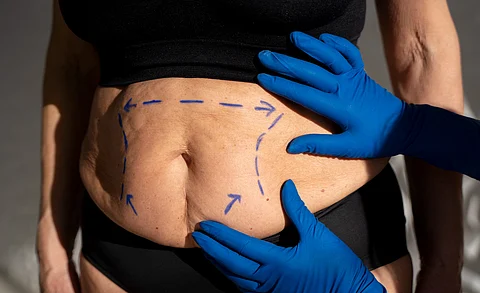The Incident
Rajni Gupta, wife of local businessman Brajmohan Gupta, underwent bariatric surgery on July 11, 2025, to address her obesity. At the time of surgery, she reportedly weighed 123 kilograms. Her daughter, Shivani Gupta, who weighed around 120 kg, was also admitted for the same procedure at the same facility. While Shivani’s surgery went smoothly, Rajni began to show signs of severe discomfort soon after her operation.
Her family claimed that she experienced acute abdominal pain immediately after the surgery, but doctors allegedly dismissed it as gas-related discomfort.
On July 13, an abdominal X-ray reportedly revealed a leak near the surgical site. Despite this, her family alleged that timely corrective measures were not taken.
Rajni’s condition deteriorated over the next few days, and she eventually died on July 18.


